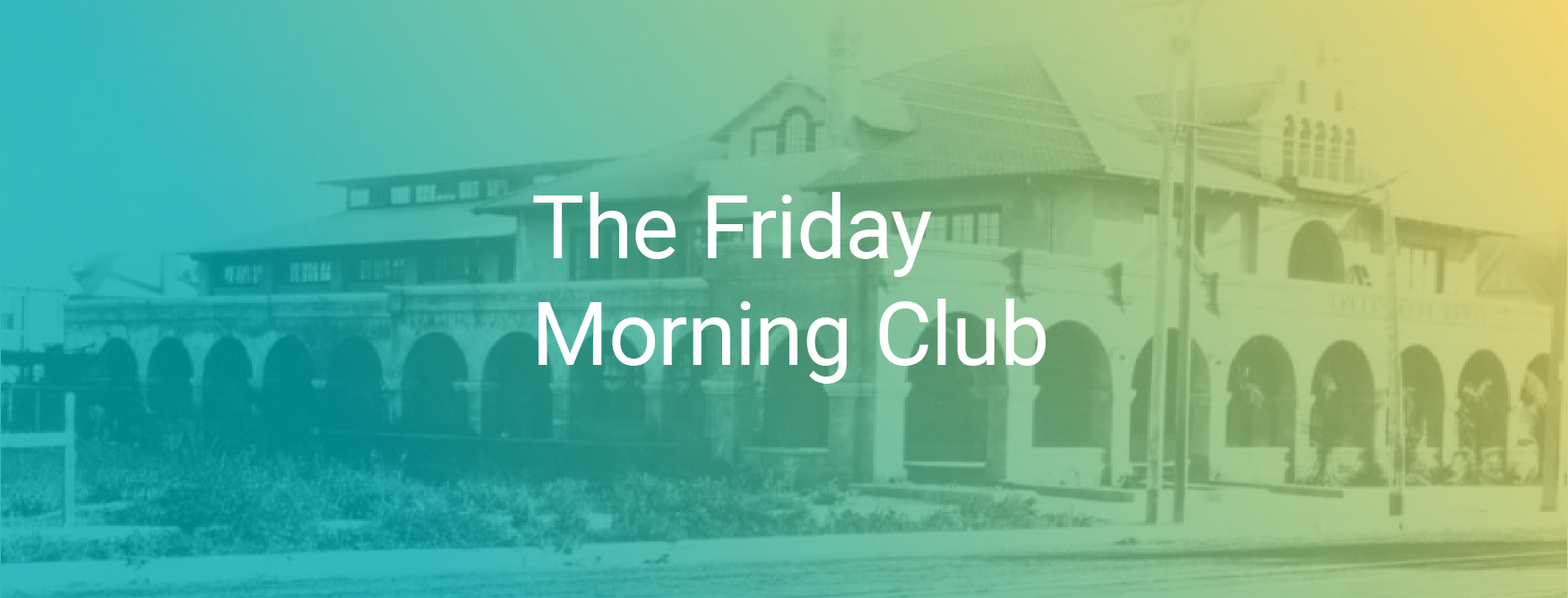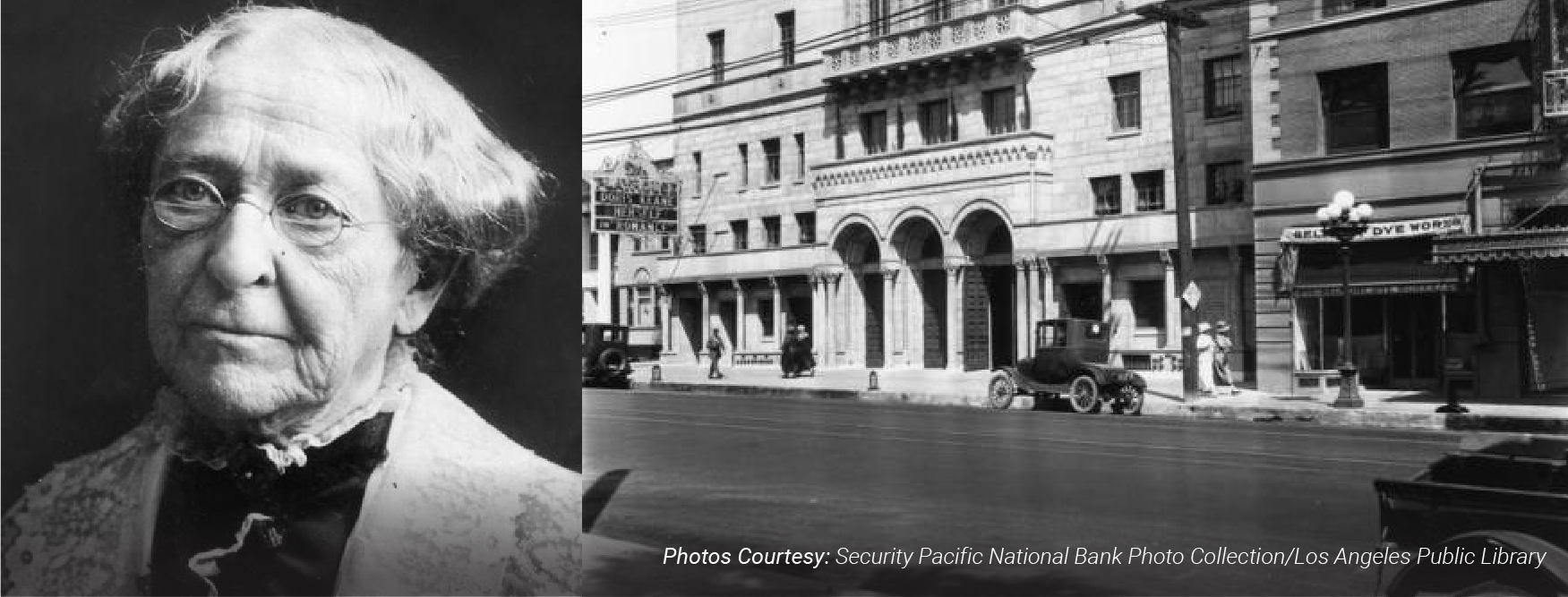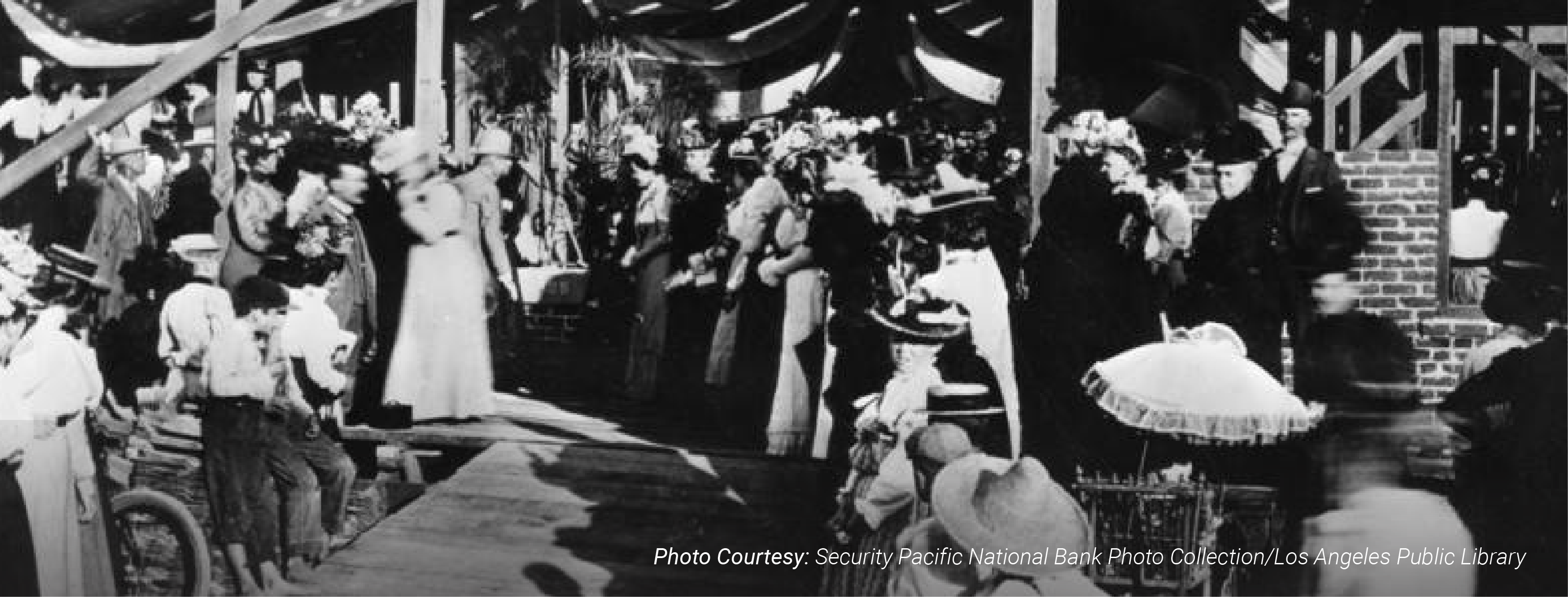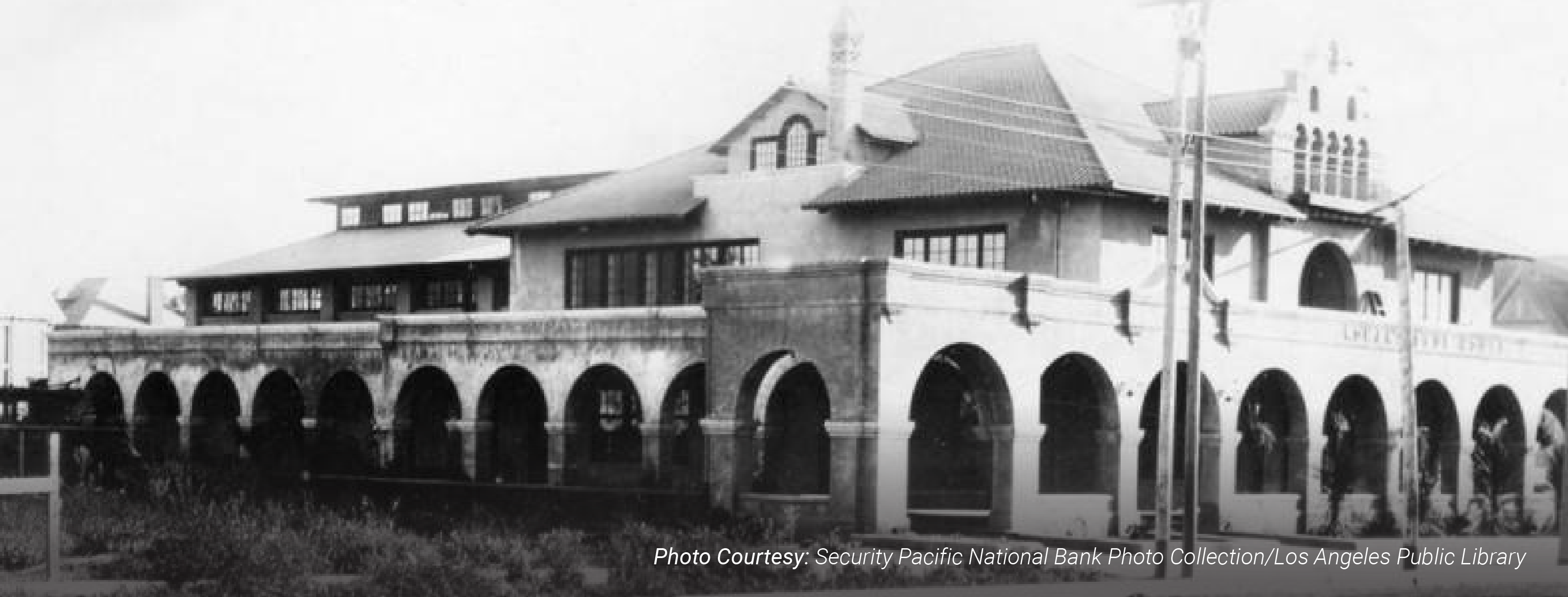
#OurLA
At a time when Angelenos are significantly confined to our homes, LA City Planning’s Office of Historic Resources has created a series of blogs called #OurLA to keep us connected to one another and to the places and neighborhoods that make Los Angeles special. This series highlights lesser-known historic buildings and historic places across the city – including places that help build community and connection. We’ll also be offering links to where you can learn more about related historic places and themes that have helped to define Los Angeles.
This month, as the nation celebrates the 100th anniversary of the 19th Amendment, guaranteeing and protecting women’s constitutional right to vote, #OurLA turns its attention to the places and people in Los Angeles who helped make this achievement possible. One of these lesser-known stories is the history of the Friday Morning Club on S. Figueroa St. in Downtown Los Angeles, and its founder, Caroline Severance.

Severance had been active in social reform on the East Coast and had founded the nation’s first women’s club, in Boston in 1868. Ten years later, she moved to Los Angeles and founded the Los Angeles Women’s Club, but that club disbanded twice in the 1880s during periods when Severance returned to Boston for extended stays.
In 1891, Severance had returned to Los Angeles and gathered a group of women to form a new club: the Friday Morning Club. Its charter members were the most prominent and influential women of the era, involved in an array of progressive causes, including suffrage.

By 1899, when the Friday Morning Club had grown significantly and needed a permanent home, it built a Mission Revival-style clubhouse at 930-940 South Figueroa St. The clubhouse was used as a venue for many women’s suffrage meetings and events by other organizations.
The Friday Morning Club became a vital force in every issue affecting women’s interests, the improvements of civic affairs, and the inauguration of social reform. Its programs took up topics such as public sanitation and housing, industrial legislation for women, child labor laws, and education. Severance brought nationally known activists including Susan B. Anthony, Julia Ward Howe, and Charlotte Perkins Gilman to the club as speakers, aiming to inspire women to become politically engaged.
The Friday Morning Club became the largest women's club in California, with a membership of over 1,800 by the 1920s, and the club needed a larger home. In 1922, officers of the Club secured a $350,000 loan for a new clubhouse after raising $200,000 for the project. The new clubhouse at 938- 940 South Figueroa Street was designed by the architecture firm Allison & Allison, a firm that also designed Royce Hall at UCLA and First Congregational Church at 6th St. and Commonwealth Ave. It is a five-story, Renaissance Revival-style building that had a grand two-story foyer, an ornate 1,400-seat auditorium, a library, a 500-person banquet hall, and a row of suites on the top floor.
Today, the building is City of Los Angeles Historic-Cultural Monument No. 196 and is listed in the National Register of Historic Places.

The club sold the building's title in 1977 to the Society for the Preservation of Variety Arts, who used the auditorium (named the Variety Arts Theater) for live plays, cabarets, and for filming and special events rentals. The Friday Morning Club’s members continued to meet at the building until the 1990s. In 2015, Hillsong Church announced that it would be leasing the building to use it for church services and offices, but the church later abandoned their plans and the property was listed for either sale or lease earlier this year.
Despite uncertainties about the building’s future use, the Friday Morning Club’s story reflects a rich legacy of women’s rights in Los Angeles.
For a deeper dive at home:
In 2018, the Office of Historic Resources completed the Women’s Rights in Los Angeles Historic Context Statement, providing a comprehensive framework for understanding the buildings and places associated with the struggle for women’s rights, from the suffrage movement beginning in the 1880s through the feminist movement of the 1970s.
HistoricPlacesLA, the citywide inventory of historic resources, includes other buildings and sites associated with women’s suffrage in Los Angeles, such as the Eagle Rock Women’s Twentieth Century Clubhouse, another women’s club active in advocating for the right of women to vote.
Another significant Los Angeles location associated with the suffrage movement is the Foy Residence, Historic-Cultural Monument #8, located within the Carroll Avenue National Register Historic District in the Angelino Heights Historic Preservation Overlay Zone (HPOZ). Mary Foy, who lived at the house, was an extraordinary figure, serving as Los Angeles’ first female librarian and a suffragist. The Los Angeles Public Library recently hosted a virtual public program on Mary Foy’s legacy.